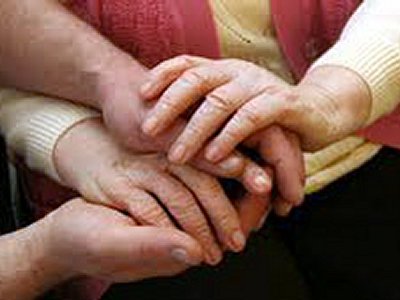
TWENTY-FIRST CENTURY RAIN CHECK
Back in 1990s, a lot of time was spent looking back on the 20th century. People noted how optimistically it began in 1900 – certainly in Britain, as it rode the long wave of industrialisation and took pride in its Empire. But within four decades, the world had been at war twice, endured a devastating pandemic and an economic depression, and the rise of poisonous fascism in major, apparently civilised countries. In less than forty years.
It's fascinating how optimistic we were again in 2000. This wasn’t just millennial hubris; there were good grounds, too: the tech revolution was surging, the internet was spreading globally, the Cold War had ended, there were more democracies than at any point in history – including now – and according to one famous UK Chancellor, we had abolished boom and bust. Inside 24 years, we’ve had 9/11; two major and unsuccessful US led wars in Afghanistan and Iraq; a global financial crash; the rise of a poisonous strain in social media and its blurring of truth and lies; a decade and more of austerity; populist politics globally and a near insurrection in the US; another pandemic and a worldwide lockdown never seen before; war in Europe; the effects of climate change; a cost of living crisis; war in the Middle East. If you like cricket, this century has gone from 100 for 0 to 124 for 7.
At the end of 2023, the California-based company, OpenAI – creators of ChatGPT - was plunged into boardroom chaos following the temporary removal of its chief executive. A battle was taking place, apparently, between ‘doomers’ and ‘accelerationists’. Doomers see great existential threats being posed by the advance of AI; accelerationists can’t wait to see where it takes us – and the sooner, the better. When even the experts can’t agree on whether AI is good for humanity or not, it is hard for the rest of us to decide. But there is a third category beyond doomers and accelerationists when it comes to humanity’s future, and that is the hopers.
Hope is different from optimism. Optimism is being a glass half full kind of person who crosses their fingers, closes their eyes and announces the future will be better, because it has to be. The hope we have from God in Christ doesn’t project into the future, it comes from the future into the present, to transform it. The kingdom of God is drawing near. It is history backwards.
The present loss of hope is closely linked to a loss of trust, especially in leaders and institutions. The late Chief Rabbi, Jonathan Sacks, believed the greatest threat to the UK lay in the loss of trust in its institutions. Many felt some big porkies were told to take the west to war in Iraq; leading bankers got clean away with criminal recklessness while poorer people paid the price in welfare cuts; people made life changing sacrifices in lockdown while parties took place in Downing Street; science was undermined by angry antivaxxers and climate change deniers.
When we can’t trust others, we begin to lose hope. When we lose hope, we can’t trust others.
Here are five related observations about the Christian hope we have, and how we might share it.
-
1. Some people face terrible situations. Illness, bereavement and poverty are game changers in life. Levels of poverty in the UK in some places have to be seen to be believed - and because some people don’t see it, they don’t believe it. Poverty is experienced more harshly when you live near to people who are wealthier. And that’s Britain’s experience. As epidemiologists have shown, the greater the inequality in a country, the deeper the mental illnesses. So, when we talk about Christian hope, we have to be seriously self-aware around what poverty does to people.
>
-
2. That points to a way of worshipping which embraces lament. We can’t allow our worship to be an escape from the stuff we hear about. We are not just talking about intercessions in church, either, but a whole way of worshipping together that can cry out to God with real honesty and is not scared to express pain or bewilderment. There is a lot to lament about 24 years into this century. If it’s true that younger generations value authenticity above most things, then some honest lament would be a witness to it.
-
3. In embodying hope, we should find humility. Chasing humility is like chasing a balloon on a windy day and I don’t even think we’re supposed to catch it anyway because that kind of defeats the point. But the trust issue is a big one for the Church. We have implicit trust in Jesus, but many looking in have a deep, inbuilt mistrust of the Church, which obscures their view of Jesus. We need to be humbly self-aware round this.
-
4. One way we build trust is to show we care about people’s welfare; about their bodies. Back in the 1990s, it was really hard for the Church in the UK to make headway on this. Churches were blocked by councils and agencies that assumed all we wanted to do was make converts and that our social action was no more than a Trojan horse for proselytising. Strangely enough, when council budgets ran dry, the Church suddenly became interesting again. I do not think this will change any time soon, and that’s a good thing, because there is so much we can do better in partnership with others - while also holding to the transformative power of the Gospel we believe in.
-
5. What should our prophetic voice be? We cannot just live out Matthew 25 in its feeding of the hungry and its clothing of the threadbare. We also have a prophetic inheritance that asks awkward questions too. Have we become a little shy round this? Social policy questions are very complex and can’t be reduced to soundbites, but we have to find a voice round injustice, for we have to speak up for the voiceless and the powerless.
These five themes: poverty, lament, humility, social action and prophetic voice may be part of the answer to that loss of hope and trust.





